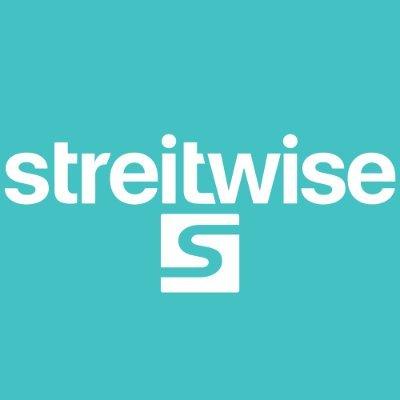Invest in private market alternatives
Invest in equity REIT
Investments
$3,515
The minimum investment amount for Streitwise is $3,515, which is based on a Net Asset Value (NAV) of $7.03 per share.
Moderate Risk
3/5
Yieldstreet investments, focused on high-yield, specialty lending, carry inherent risks higher than traditional investments, primarily due to the potential for borrower default.
Moderate Risk
3/5
Investing in Streitwise involves risks such as market fluctuations affecting real estate values, limited liquidity with a one-year lockout period and potential for delayed redemptions, discounts on early redemption reducing investment value, concentration in specific real estate markets, reliance on management's decision-making, regulatory changes impacting operations, and sensitivity to interest rate changes.
Minimum Liquidity
1/5
Yieldstreet's investments are generally less liquid, meaning they cannot be quickly sold for cash. These private market alternatives often require longer holding periods.
Minimum Liquidity
1/5
Streitwise's Redemption Plan offers investors a structured way to sell their shares back to the company, starting after a one-year lockout period. Redemption before five years involves a discount, with full NAV redemption available after five years.
Receive new reviews from Fintorial
Moderate Return
9.6 %
The expected net annualized return (IRR) for investors on Yieldstreet is 9.6%.
Low Return
7.3 %
Streitwise has offered an average annualized dividend yield of 7.3% since 2020. Future dividends depend on factors like tenant quality and maintenance costs, and cannot be guaranteed.
Short-term Investment
6+ months
Yieldstreet's investments span time horizons from as brief as 6 months to as long as 5 years.
Long-term Investment
5+ years
Streitwise targets long-term investments, ideally over five years, to avoid early redemption discounts and maximize returns. There's a one-year lockout period, emphasizing the long-term approach.
Who can invest
United States
Yieldstreet is open to U.S. persons with a valid TIN, U.S. bank account, and U.S. mailing address. Non-accredited investors can access the Alternative Income Fund, while single asset investments require accredited investor status verification.
Who can invest
International
Streitwise is open to both accredited and non-accredited investors, including international participants, with some investment limits for non-accredited investors to ensure their financial safety. International investors can join with certain conditions and may face delays in processing.
Moderate Volatility
3/5
Assets on Yieldstreet, being alternative investments, often show different volatility compared to traditional markets, potentially offering less correlation with broad market swings.
Moderate Volatility
3/5
Assets on the Streitwise platform, mainly commercial real estate, typically show lower volatility compared to stocks or cryptocurrencies, due to the slower pace of value changes in real estate. However, factors like economic shifts, interest rate changes, and market conditions can still cause fluctuations, albeit over longer periods.
Regulation and audits
SEC Regulated
Yieldstreet is regulated and undergoes regular audits for compliance. Its partnership with Synapse Brokerage LLC, an SEC-registered broker-dealer and FINRA and SIPC member, ensures adherence to strict financial regulations.
Regulation and audits
SEC Regulated
Streitwise is regulated under Regulation A+ of the JOBS Act, allowing it to sell securities to both accredited and non-accredited investors with SEC oversight. Although not specified, companies under this regulation typically must submit audited financial statements annually, conducted by independent firms, ensuring transparency and compliance.
Insurance
Yes
Funds in the Yieldstreet Wallet are insured up to $250,000 by the FDIC, with deposits between $250,001 and $1 million spread across multiple FDIC-insured banks for extended coverage.
Insurance
No
Streitwise has not specified the types of insurance it holds for its operations or properties. Typically, real estate investments are covered by property, liability, and business interruption insurance.
Payouts
Dividends
Yieldstreet offers varied dividend or interest payment structures: fixed income investments provide monthly payments at a target yield, diversified portfolios offer quarterly target yields, and art investments yield returns upon sale, all subject to specific terms and potential annualized net returns.
Payouts
Dividends
Streitwise pays dividends quarterly, about 10 days post-quarter end, offering payment via check, direct bank transfer, or through a dividend reinvestment program.
Withdrawals
Investors on Yieldstreet receive distributions directly into their Yieldstreet Wallet and can withdraw these funds to their bank account as desired.
Withdrawals
Investors can request to redeem their Streitwise shares after a one-year lockout period, with redemptions processed quarterly. Early redemptions (before five years) face discounts, while shares held for five years or more are redeemed at 100% NAV. Quarterly redemption limits may delay processing.
Extra Fees
Yes
Yieldstreet's fees include a range from 0% to 2.5% annual management fees, structured notes incur a 1.25% annual management fee plus a $150 annual fund expense, the Yieldstreet Alternative Income Fund charges a 1.0% annual management fee and up to a 0.5% annual administrative expense.
Extra Fees
No
Streitwise charges a straightforward 2% annual fee on investments, taken from dividend payments, not the principal. There are no additional or hidden fees, making its fee structure transparent and investor-friendly.
Taxes
Tax Form
Yieldstreet issues either a K-1 or 1099 form for tax purposes, based on the legal structure of the investment, with details provided on the offering page and in downloadable documents when new offerings are launched.
Taxes
Tax Form
Streitwise provides a Form 1099-DIV for tax reporting by January 31 each year, detailing dividends which may be taxed as return of capital, capital gains, or ordinary income.

